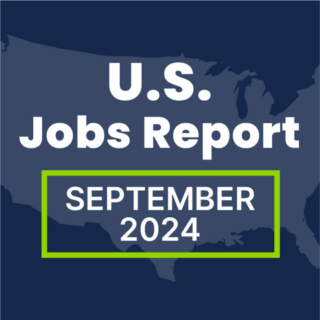Healthcare organizations face a number of unique recruitment challenges compared to other industries. Finding and attracting candidates with the specific clinical, medical, and administrative skills required is an ongoing battle, especially for critical roles like nurses, physicians and specialist practitioners. With a large portion of the healthcare workforce reaching retirement age, an older population demanding more healthcare services, and new technology shifting the skills needed in the healthcare workforce, a skills shortage in healthcare is growing rapidly.
Healthcare organizations must plan now for the future by undertaking comprehensive workforce planning, establishing a robust talent pipeline, focusing on retaining their current workers and appealing to the younger generations to step into those roles.
The Healthcare Talent Landscape
The healthcare industry faces an uphill battle when it comes to recruitment and staffing. A perfect storm of factors, including an aging population, workforce shortages across multiple disciplines, and a global pandemic that has stretched resources to the breaking point, has created immense challenges. Healthcare organizations must navigate a highly competitive recruitment landscape to attract and retain top talent. Additionally, new healthcare roles are emerging that require specialized skill sets, further complicating hiring efforts. In this constantly evolving climate, understanding the current healthcare recruitment landscape is crucial for organizations looking to build a strong, sustainable workforce.
Dig Deeper
How RPO Can Solve The Top Challenges In Healthcare Talent Acquisition
Demographic Shifts Are Increasing Demand
People are living longer, and as Baby Boomers age, the demand for health services, including home health services, long-term and aged care, is increasing. Chronic conditions like heart disease, diabetes, cancer are becoming more common with nearly half of the American population suffering from a chronic illness.
An older and sicker population is putting pressure on healthcare workers, especially those in clinical roles like nurses, physicians, health aides and therapists. Plus, demand is high for cardiovascular technologists, clinical lab technicians and other allied healthcare professionals who operate specialized equipment to diagnose and treat chronic conditions. Attracting and retaining top healthcare talent has never been more competitive, with demand increasing in both acute care and community settings, including large health systems, public health organizations, tech companies moving into healthcare, travel nursing firms, long-term care facilities, the military, healthcare research, mental health agencies, insurance and managed care companies, and even other industries.
Talent Supply Can’t Keep Up with Demand
The increase in demand seems to coincide with a healthcare talent shortage. The Bureau of Labor Statistics (BLS) projects that the country will face a shortage of 195,400 nurses by the 2031. Plus, a shift towards home-based care means the shortage of home health aides is projected to grow significantly. The BLS predicts that the number of openings for home health and personal health roles will increase 37% by 2028.
With home-based and long-term care growing, the U.S. healthcare system is also experiencing shortages for occupations like physical therapists and occupational therapists. Plus, these facilities find recruiting and retaining nursing assistants, care aides and direct care workers increasingly difficult due to low wages, demanding work and limited career advancement opportunities.
Retirement and Burnout Create Retention Issues
The challenges surrounding the skills shortage in healthcare are exacerbated by healthcare professionals exiting the workforce in droves. Experienced nurses, doctors and other clinicians are retiring and leaving patient care roles, resulting in the loss of crucial knowledge and experience for healthcare systems.
According to the American Association of Colleges of Nursing the median age of a Registered Nurse (RN) is 46 years old. Plus, more than a quarter of RNs report they plan to retire or leave nursing over the next five years. The rates of RN turnover in the United States have ticked up over recent years, growing from 17% in 2017 to 26% by 2021.
Driven by the strain of the pandemic and a shrinking workforce, many healthcare workers are experiencing burnout. According to the Medscape National Physician Burnout and Suicide Report, the average burnout rates for nurses and physicians in the US is 40%.
Burnout also has an impact on patient care. According to Nursing Times, about half of midwives say they’re afraid of making a mistake because they’re exhausted.
Innovation is Shifting the Skills Shortage in Healthcare
As care delivery models have shifted, there is a growing need for nurses and staff with specialized skills and experience. Use of telemedicine and virtual care expanded during COVID-19 and is continuing to rise as a way to improve access to healthcare. Digital disruptor Amazon recently completed an acquisition of One Medical and is now offering a new model of digital “concierge” or “membership” healthcare.
In addition, new innovations in digital health (think personal health tracking apps or wearables), med-tech, genomics, precision medicine, AI and more are transforming healthcare and shifting the necessary skills in the healthcare workforce.
Rising Labor Costs are Adding to the Strain on Healthcare Organizations
With nationwide labor shortages and inflation, healthcare organizations face rising costs for salaries, benefits and contract staffing. In all industries, workers are requiring more competitive compensation, benefits and perks to be enticed. This puts a particular strain on healthcare organizations where staffing is literally a matter of life and death.
High turnover among certified nursing assistants drives up costs for long-term care facilities and impacts quality of care. In order to keep high patient care standards and staff shortages, the U.S. healthcare system relies heavily on costly contract and travel nurses and other providers which further drives up labor costs for hospitals. In fact, contract labor expenses have risen more than 250% over the past three years.
Addressing the Skills Shortage in Healthcare
Addressing the skills shortage in healthcare requires a multi-pronged approach—improving workforce planning, enhancing recruitment and retention efforts, and elevating the perception of healthcare careers for the next generation.
Workforce Planning
To effectively respond to the changing healthcare talent landscape, organizations must take proactive steps to plan for their future needs. The future will look different for every organization. Healthcare organizations in Florida and the Southwest, where there are large numbers of retirees, will have different staffing needs than organizations in trendy urban areas in the Pacific Northwest or East Coast where the population tends to be younger and healthier. Region also makes a difference in attracting candidates, as rural health systems are already struggling to fill positions. Healthcare organizations should know what their needs will be in the coming years and what challenges they’ll face attracting workers.
Data analytics is a valuable tool for workforce planning. The American Hospital Association recommends that organizations analyze data including current workforce demographics, potential future workforce requirements, and factors impacting the data, like the increasing popularity of walk-in clinics, telehealth services and digital healthcare models. Predictive and prescriptive analytics tools can help healthcare organizations plan for future needs and evaluate how different decisions will impact those hiring needs. According to SHRM, this type of workforce planning can save money by eliminating issues with understaffing and overstaffing. Predictions can provide organizations with a clearer view of how and when different talent gaps will impact them. Armed with that information, healthcare organizations can make informed decisions when it comes to forming partnerships, increasing retention and reaching out to younger workers.
Building Talent Pipelines
A key strategy for combating the the skills shortage in healthcare will be convincing more people to enter the healthcare industry. Too often, HR leaders at organizations only think of potential candidates through a narrow lens. They focus on the people who already work in the industry and who already have the education and skills to be a nurse, medical technician or phlebotomist. There aren’t enough people already in those pipelines to fill the talent gap. Healthcare organizations need to think broad and start focusing on the young people who are considering a career in healthcare. They need to start marketing to these candidates earlier than ever before.
The American Hospital Association recommends that healthcare organizations establish community pipelines by partnering with high schools, colleges and other academic institutions. Through these partnerships, healthcare organizations can start engaging with future candidates earlier than ever and help drive young people to the healthcare industry. Partnerships can also create more candidates in a geographical region with a specific set of skills. According to the American Association of Colleges of Nursing, a partnership in Minnesota between the University of Minnesota and the VA Healthcare system helped expand enrollment in the university’s nursing program and increased the program’s focus on veteran care. The program ensures more graduates in Minnesota with the skills necessary to care for veterans. Healthcare organizations should form these partnerships strategically, using their workforce planning predictions to understand which types of positions will have the greatest demand and where these partnerships can have the biggest impact.

Focusing on Retention
HR leaders at healthcare organizations are grappling with the stresses the skills shortage in healthcare is creating for their current employees . Understaffing creates larger workloads and longer hours. According to CareerBuilder, 70% of nurses say they feel burnt out in their current job and more than half rate their stress level as “high.” According to Medscape, only 56% of nurses would choose their career if they had a chance to start over again. If current health care workers are stressed, burned out and regretting their career choice, that could harm the talent pipeline. Healthcare organizations cannot afford to lose younger nurses due to stress or burnout.
Healthcare organizations will have to face the challenges of burnout head on to retain their workers. Healthcare Dive offers tips for ways HR professionals can help, including making your staff aware of the signs of burnout and teaching self-care strategies. Wellness among the healthcare workforce must be a priority. Some healthcare organizations have created quiet rooms stocked with yoga mats and massage chairs where nurses can go during their shifts to take a break. CareerBuilder recommends offering a flexible work environment, encouraging exercise, establishing an open-door policy, offering mental health tools and focusing on continued education.
While an expensive option, contract healthcare providers can also help ease the burden on understaff facilities. PRN, or “pro re nata,” positions are growing in popularity throughout the entire healthcare industry. The positions are typically part-time, as needed, and many healthcare workers are turning to these roles for the flexibility, rather than taking full-time positions. Healthcare organizations can use PRN workers to cover understaffed shifts, which can lift some of the burden on permanent employees.
Appealing to Younger Workers
Healthcare organizations are competing for the best of the limited talent pool. To succeed in attracting candidates, healthcare organizations must build a strong employer brand and meet the needs of millennial and Generation Z workers.
What do millennials want? Countless writers have tried to answer that question, but Harvard Business Review reports millennials aren’t necessarily all that different from older generations. They want good managers, interesting work and the opportunity to learn and grow. Like many other generations, they want to make a positive impact and help solve social and environmental challenges. By its nature, a career in healthcare can provide that. One thing that does set millennials apart from earlier generations is an increased debt burden due to higher education costs. Some financial experts recommend that organizations consider new benefits packages that offer student debt repayment to lure millennial workers.
As for Generation Z, the oldest members are just starting to enter the workforce, but experts say to be prepared for a cohort of workers well versed in technology. According to Forbes, in addition to being technologically savvy, members of Gen Z are also entrepreneurial and serious-minded after watching the impact of the Great Recession, so organizations should expect creativity and offer continuing educational opportunities. Harvard Business Review recommends reaching Gen Z candidates where they are—on mobile devices. Authenticity and personalization are also important to this segment of the workforce, as they’ve grown up bombarded with personalized advertisements online.
Engaging an Expert to Tackle the Skills Shortage in Healthcare
As they work to manage the growing skills shortage in healthcare, healthcare organizations are turning to experts in healthcare RPO, MSP and Total Workforce Solutions for healthcare staffing support. As you plan for the future, a talent partner can help provide a view of the whole talent spectrum, finding the right mix of both full-time and contingent workers. As the gig economy grows in popularity and more healthcare workers turn to contingent work, a talent acquisition partner can also ensure compliance on legal issues. Healthcare organizations should seek out partners with the right experience to tackle the specific needs of the industry.
A partner with a depth of data analytics experience can help develop a unique plan that addresses the needs, region and demographics of your individual healthcare organization. Data expertise can also help organizations determine why current employees leave and predict which changes could make the biggest differences in employee retention.
Healthcare organizations should also look for a partner with strong experience in building candidate-centered application processes and employer branding. As healthcare organizations compete for talent, a candidate-centered process and strong employer brand will help bring in the millennial and Gen Z workers.




